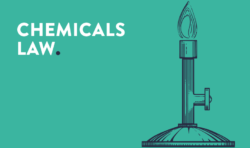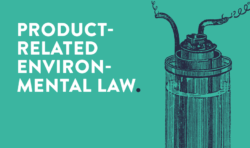After this date, however, the UK will have to be treated as a third country in relation to the EU in many areas according to the current plans.
Of course, this also applies with regard to Regulation (EC) No 1907/2006 (REACH), Regulation (EC) No 1272/2008 (CLP), Regulation (EU) No 528/2012 (Biocidal Products Regulation) and Regulation (EU) No 649/2012 (PIC).
In order to enable companies to best prepare for the new situation and take the necessary measures in good time, the European Chemicals Agency (ECHA) has been providing extensive information on its website for some time. This information has now been extensively revised and expanded. Starting from a homepage (ECHA – How will the UK withdrawal affect you?), a wide range of information (explanations, FAQs) on all the above-mentioned legal acts is available. The perspective of both an EU/EEA actor and a UK actor is considered in order to provide a comprehensive picture of the upcoming changes.
Urgent action is required in any case for companies that purchase substances as such or in mixtures from suppliers based in the UK and who, as downstream users, have not been directly affected by registration and authorisation obligations so far. At the end of the transitional phase, these companies will have to take additional measures which can only be taken with sufficient advance notice. With regard to REACH, this concerns the following cases in particular:
- A company established in the EU-27 purchases substances from a manufacturer established in the UK. Previously, this was a process within the EU, so that the UK manufacturer had to be registered under REACH, but the company based in the EU-27 did not qualify as an importer and was therefore not required to register. However, if the UK manufacturer does not transfer its production to the EU-27 after the transition period and does not appoint an Only Representative in the EU-27, the company based in the EU-27 becomes an importer subject to registration obligations in this constellation.
- In this context, it should be noted that for 712 substances registrations only exist by UK manufascturers or importers (Excel list of substances available at: ECHA – List of substances only registred by UK companies), so that from the perspective of an importer of these substances based in the EU-27, there is a need for action for these substances to maintain their marketability in the EU after the end of the transition phase.
- With regard to joint registrations for which a UK manufacturer or importer acts as Lead Registrant, it must be ensured that the role of Lead Registrant is transferred to an EU-27 registrant or Only Representative before the end of the transition period, as otherwise, if the registration of the UK Lead Registrant is discontinued, the complete registration for all co-registrants risks being lost.
- The situation is similar in the supply chain with a substance subject to authorisation under REACH. If a UK manufacturer previously had a corresponding authorisation, he can either transfer production including authorisation to the EU-27 or appoint an Only Representative in the EU-27. Otherwise, the authorisation will cease to apply and a customer of the UK manufacturer located in the EU-27, who previously had to be qualified as a downstream user and could benefit from the authorisation of the UK manufacturer, will become an importer at the end of the transition period and may have to apply for authorisation himself.
In order to be prepared for the upcoming changes after the end of the transition phase, the remaining time should be used to coordinate and implement the necessary precautions with all relevant actors in the supply chain. This is the only way to ensure that products will still be marketable from 1 January 2021 and can be manufactured, imported and placed on the market without friction.
Do you have any questions about this news or would you like to discuss the news with the author? You are welcome to contact: Michael Öttinger






